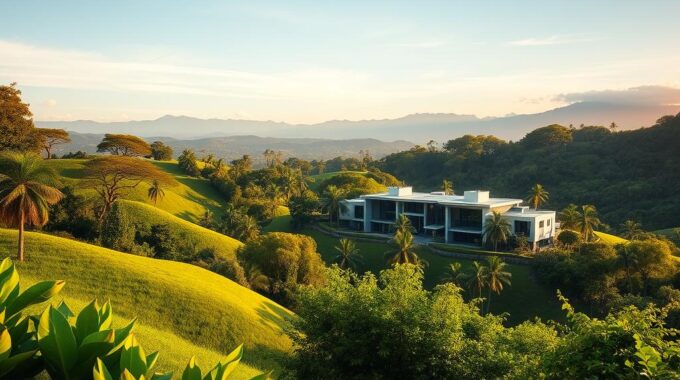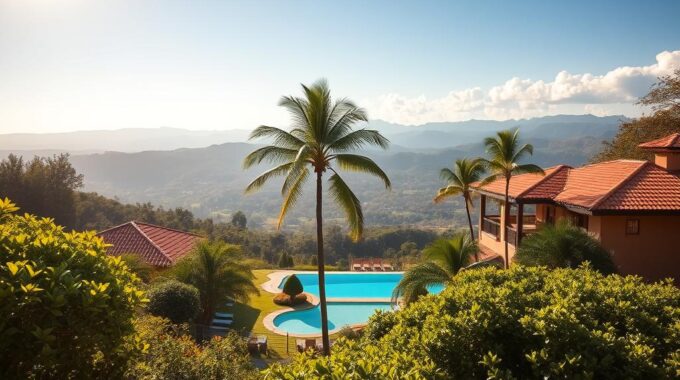Can US citizens get residency in Costa Rica? Find out the process, costs, and requirements with CRIE's expert help and achieve your dream of living in Costa Rica.
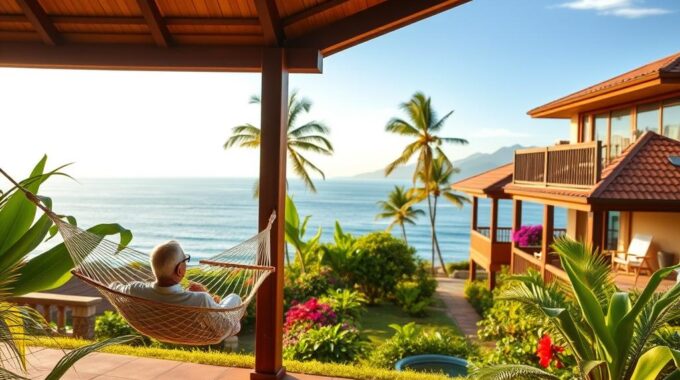
Can Pensioners Buy Property in Costa Rica? Expert Guidance
Costa Rica has become a haven for retirees worldwide, ranking among the top five retirement destinations globally. Its stable economy, breathtaking natural beauty, and affordable cost of living make it an attractive haven for pensioners.
With over 20 years of experience, Costa Rica Immigration Experts (CRIE) has assisted numerous clients in achieving their dream of living in Costa Rica. Foreigners can own property with the same rights as citizens, a fact that simplifies the process for retirees.
The country’s appeal lies in its ability to allow retirees to maintain a high quality of life without depleting their savings. As a result, many pensioners consider investing in Costa Rican real estate, a decision that requires careful consideration of the legal, financial, and lifestyle implications.
The Appeal of Costa Rica for Retirees
The appeal of Costa Rica for retirees lies in its combination of political stability, pleasant climate, and high quality of life. This unique blend makes it an attractive destination for those looking to spend their retirement in a serene and engaging environment.
Political Stability and Safety
Costa Rica is known for its political stability and safety, factors that are crucial for retirees. With no army and a strong emphasis on education and healthcare, the country provides a secure environment for its residents.
Climate and Natural Beauty
The country’s climate and natural beauty are significant draws. Costa Rica boasts diverse landscapes, from beaches to mountains, and a tropical climate that is often described as “eternal spring.”
High Quality of Life
Costa Rica is considered a “Blue Zone,” where residents enjoy longer, healthier lives. The “Pura Vida” lifestyle promotes well-being through a diet rich in fresh foods, outdoor activities, and social engagement, contributing to a high quality of life and a strong sense of community.
Retirees often report improved health after relocating, thanks to the active lifestyle and stress-free environment. The strong sense of community in popular retirement areas helps newcomers integrate and build social connections, further enhancing their lifestyle.
Legal Rights: Can Pensioners Buy Property in Costa Rica?
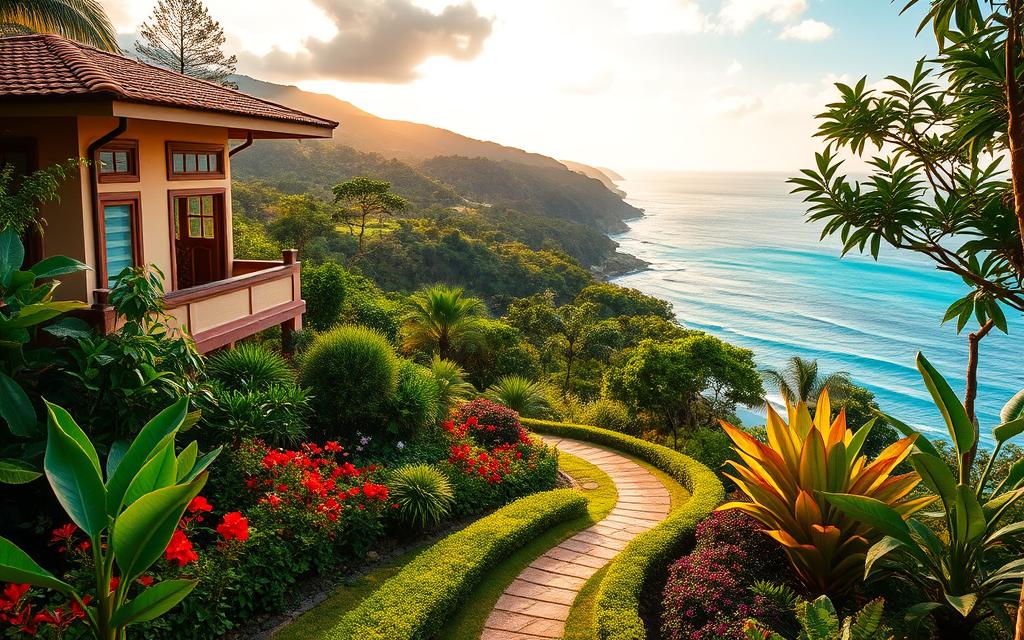
Understanding the legal rights for pensioners to buy property is crucial in Costa Rica. Pensioners are attracted to Costa Rica due to its appealing climate, political stability, and high quality of life. However, before making a purchase, it’s essential to understand the legal framework governing property ownership.
Foreign Ownership Rights
In Costa Rica, foreigners have the same property rights as citizens. There are no restrictions on foreign ownership of property, except for certain areas near the coast or borders, which are governed by the Maritime Zone Law.
Costa Rica allows foreigners to own property, making it an attractive destination for pensioners. The process is relatively straightforward, with some specific requirements for non-residents.
Maritime Zone Restrictions
The Maritime Zone Law (Ley de Zona Marítima Terrestre) governs property ownership near the coast. The first 50 meters from the high-tide line are public property, and private ownership is not allowed.
The next 150 meters, known as the restricted zone, can be leased through concessions. Foreigners, including pensioners, can acquire concession rights through proper legal structures, such as a Costa Rican corporation or a trust.
Residency Options for Retirees
Retirees looking to relocate to Costa Rica have multiple residency options to consider, each with its unique benefits. Understanding these options is crucial for making an informed decision about where and how to live in Costa Rica.
Pensionado Visa Program
The Pensionado Visa Program is designed for retirees who receive a pension from a qualified pension source. To qualify, applicants must demonstrate a minimum monthly income of $1,000 from a pension or other qualifying income source. This program offers various incentives, including discounts on healthcare, transportation, and entertainment.
Rentista Visa Option

The Rentista Visa is suitable for retirees who do not have a traditional pension but have other stable income sources. Applicants must show a guaranteed monthly income of $2,500 or deposit $60,000 in a Costa Rican bank account. This visa allows for a two-year stay, renewable upon meeting the financial requirements. It is essential to understand how this status affects property ownership rights and tax obligations.
The Property Buying Process in Costa Rica
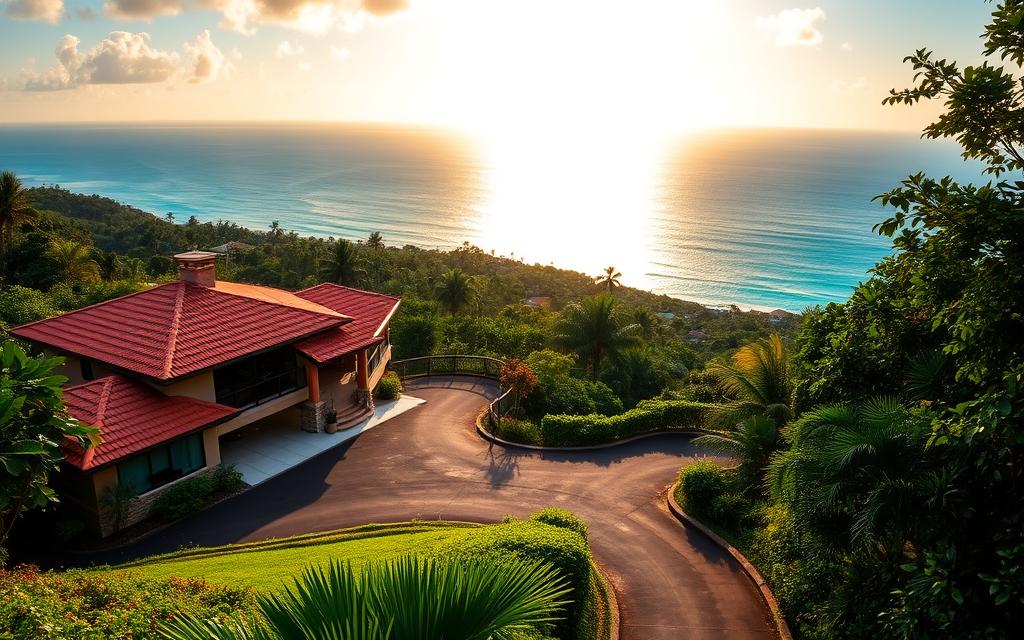
The process of buying property in Costa Rica involves several steps, including title search, due diligence, and property transfer procedures. Understanding these steps is crucial for a smooth transaction.
Title Search and Due Diligence
A title search is conducted to verify the property’s ownership and ensure that there are no outstanding liens or debts associated with it.
Due diligence involves reviewing the property’s history, checking for any encumbrances, and verifying its boundaries.
Property Transfer Procedure
The property transfer procedure in Costa Rica involves drafting and signing a purchase agreement, followed by the transfer of ownership at the local registry.
This process requires the assistance of a local attorney who will ensure that all necessary documents are in order.
Closing Costs and Fees
Closing costs in Costa Rica typically range from 3.5% to 4% of the purchase price.
These costs include a transfer tax of 1.5% of the purchase price or the registered value, registration stamps of 0.84%, and legal fees of 1.25%.
Additional costs may include $650 for setting up a new corporation and $550 for escrow services.
Personal vs. Corporate Property Ownership
When it comes to buying property in Costa Rica, pensioners often face a crucial decision: whether to purchase in their personal name or through a corporate entity. This decision can have significant implications for their financial and legal obligations.
Benefits of Corporate Ownership
Forming a corporation, specifically a Sociedad Anónima (S.A.), can offer several benefits, including liability protection and potential tax advantages. A costa rican corporation can provide a layer of protection for personal assets.
Setting Up a Costa Rican Corporation
Setting up a corporation in Costa Rica involves several steps, including drafting articles of incorporation, obtaining a tax identification number, and registering the corporation with the relevant authorities. It is advisable to work with a reputable real estate attorney to ensure compliance with all legal requirements.
Financial Considerations for Property Buyers
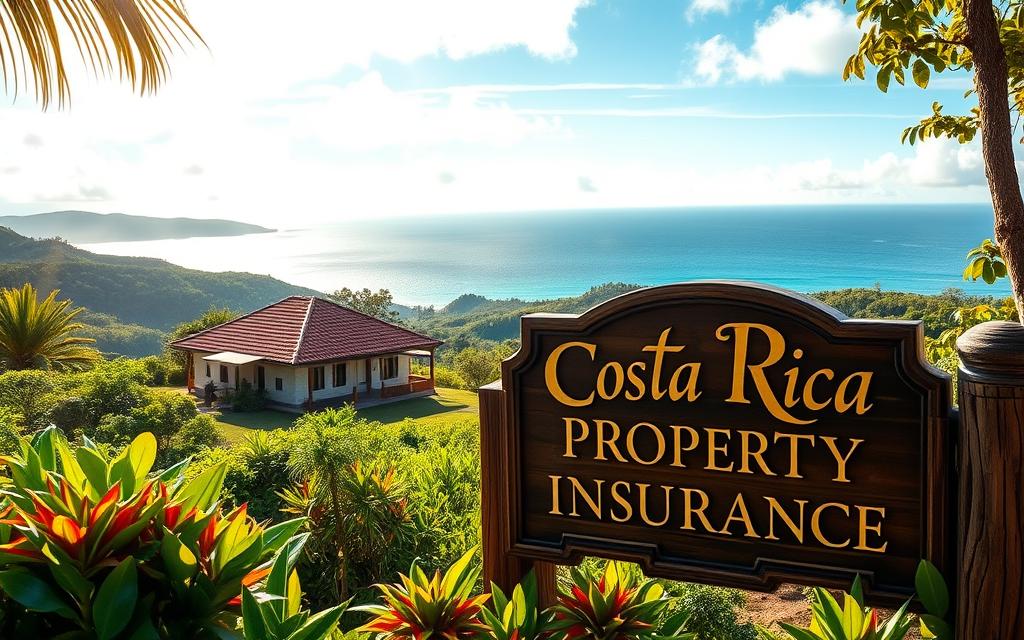
When buying property in Costa Rica, pensioners must consider several financial factors to ensure a smooth transaction and long-term satisfaction with their investment.
Property Taxes in Costa Rica
Property taxes in Costa Rica are relatively low, typically ranging from 0.25% to 0.55% of the property’s assessed value annually. These taxes are used to fund local municipal services and infrastructure.
Ongoing Maintenance Costs
Ongoing maintenance costs for properties in Costa Rica can vary depending on the type of property, its location, and the materials used in its construction. Regular maintenance is essential to protect the property’s value.
Insurance Requirements
While not always legally required, property insurance is highly recommended for homeowners in Costa Rica to protect against natural disasters, theft, and liability claims. Various types of property insurance are available, including coverage for fire, theft, natural disasters, and liability. Factors such as property location, construction type, and security features can affect insurance premiums.
Pensioners should understand the local insurance market, including options for obtaining insurance through the national insurance provider (INS) or private companies. Selecting appropriate coverage levels and finding reputable insurance providers who can service policies in English is crucial.
Best Locations for Retirement Properties
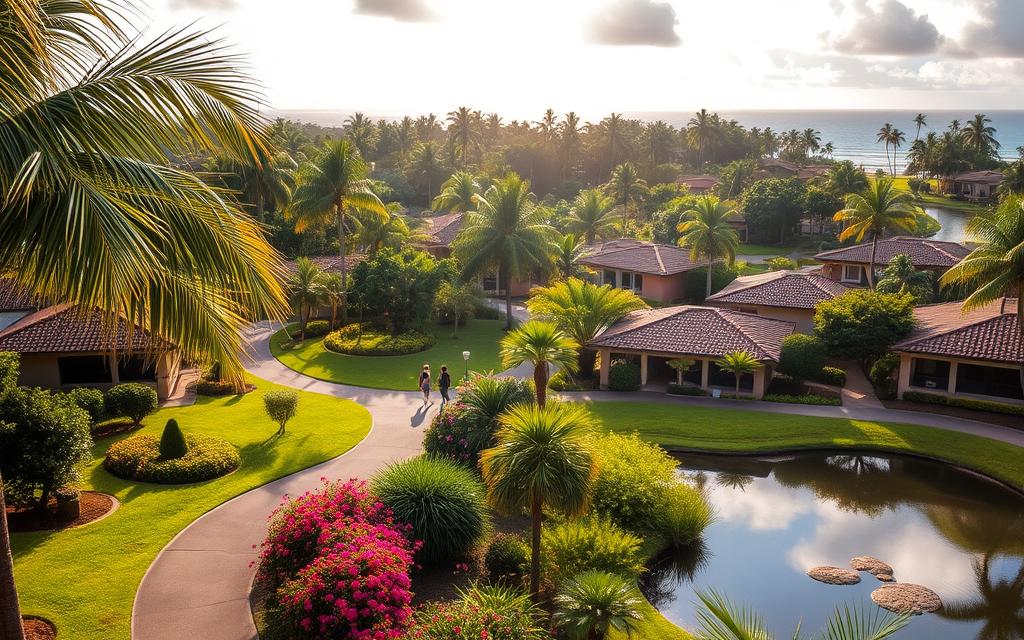
Costa Rica offers a diverse range of retirement locations, each with its unique charm and advantages. Beyond the established expatriate havens, several emerging areas are attracting retirees looking for more authentic experiences and lower property prices.
Coastal Areas: Guanacaste and Puntarenas
Guanacaste and Puntarenas are popular coastal regions known for their beautiful beaches and tropical climate. These areas offer a range of properties, from beachfront homes to inland retreats, making them ideal for retirees seeking a relaxed lifestyle.
Central Valley Options
The Central Valley is another attractive region, offering a more temperate climate and a mix of urban and rural living. Cities like San José, Escazú, and Atenas provide access to amenities, healthcare, and cultural activities, making them suitable for retirees who want a balance between comfort and tranquility.
Emerging Retirement Communities
Emerging areas such as the Southern Zone (Dominical, Uvita, Ojochal) and inland mountain communities like San Ramón and Puriscal are gaining popularity. These regions offer natural beauty, lower property prices, and a more authentic Costa Rican experience.
- Lower property prices compared to established areas
- Opportunities for a more authentic Costa Rican experience
- Potential for growth and development in infrastructure and amenities
When evaluating these emerging areas, pensioners should consider factors such as infrastructure development, access to amenities, and community building to ensure their chosen location meets their retirement needs.
Healthcare Access for Retirees
The healthcare system in Costa Rica is a significant draw for retirees, offering both public and private healthcare services. This dual system allows retirees to choose the level of care that best suits their needs.
Public Healthcare System
Costa Rica’s public healthcare system, known as Caja, provides comprehensive coverage to residents, including retirees. The quality of care is generally high, and services are affordable. Retirees who are part of the Caja system can access a wide range of medical services.
Private Healthcare Options
Private healthcare facilities in Costa Rica offer world-class services at a fraction of the cost compared to the United States and Europe. A doctor’s visit usually costs under $85, and a specialist is generally under $110. Major surgeries are about half (or less) than you would pay in the United States. Many expatriates choose private healthcare options for their convenience and quality.
Cost of Living for Pensioners
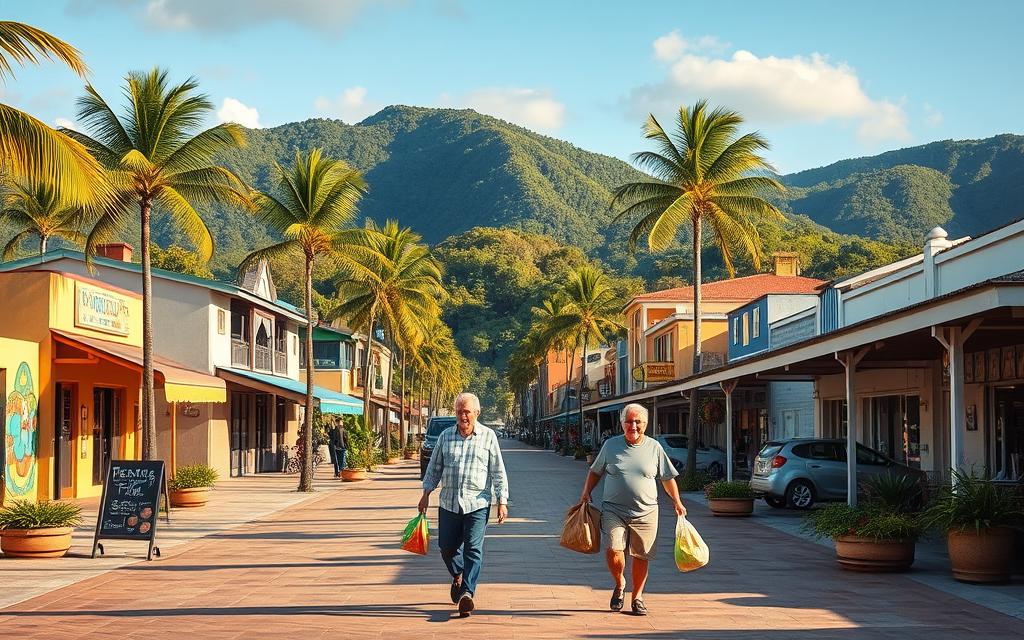
Pensioners moving to Costa Rica often find that their money goes further due to the country’s lower cost of living. Costa Rica’s emphasis on community makes it easier for retirees to integrate into local neighborhoods. The cost of living can vary significantly depending on the chosen location and lifestyle.
Monthly Budget Expectations
A monthly budget for pensioners in Costa Rica can be relatively modest, especially if they choose to live outside major tourist areas. Expenses can be lowered by adopting local customs and shopping habits. For instance, eating local cuisine and shopping at local markets can significantly reduce costs.
Lifestyle Adjustments
The “Pura Vida” lifestyle, which emphasizes simplicity and appreciation for life’s simple pleasures, can lead to greater satisfaction among expatriate retirees. By embracing local alternatives and adjusting their spending patterns, pensioners can enjoy a fulfilling lifestyle without incurring high costs. Long-term expatriates often report that their initial adjustments lead to a more balanced and cost-effective way of living.
- Embracing local customs can reduce living costs.
- The “Pura Vida” mindset promotes a simpler lifestyle.
- Lifestyle adjustments can lead to greater satisfaction.
Common Pitfalls to Avoid When Buying Property
When buying property in Costa Rica, several pitfalls can be avoided with proper knowledge and planning. Buyers must be aware of the potential issues that can arise during the purchasing process.
Title and Ownership Issues
One major pitfall is title and ownership issues. In Costa Rica, it’s crucial to ensure that the property has a clear title. Further information on this topic is available. Buyers should conduct thorough due diligence to avoid purchasing a property with disputed or unclear ownership.
Working with Unregistered Agents
Working with unregistered real estate agents can lead to significant problems, including lack of accountability and potential scams. Buyers should verify that their agent is registered with the relevant authorities.
Zoning and Development Restrictions
Zoning and development restrictions can significantly impact how a property can be used. Buyers should research local regulations, including restrictions related to environmental protection, such as setbacks from rivers and coastal areas. A list of key considerations includes:
- Understanding local zoning regulations
- Environmental protection restrictions
- Setbacks from water bodies and coastal areas
Selecting Professional Support
To ensure a smooth transaction, it’s essential to select reliable professional support when purchasing property in Costa Rica.
Finding a Reputable Real Estate Attorney
When searching for a real estate attorney in Costa Rica, look for professionals with extensive experience in handling property transactions. A reputable attorney will guide you through the complexities of Costa Rican real estate law, ensuring that your rights are protected. They will also help with title searches, due diligence, and the closing process.
Working with Registered Real Estate Agents
Working with registered real estate agents is vital when searching for properties in Costa Rica. Look for agents registered with the National Association of Realtors (NAR) and the Costa Rica Guanacaste Association of Realtors (CRGAR). These agents have demonstrated a commitment to ethical practices and have the local knowledge necessary to navigate the Costa Rican real estate market effectively.
Costa Rica Immigration Experts Services
Costa Rica’s appealing lifestyle for retirees is complemented by the assistance provided by Costa Rica Immigration Experts for residency services. Their expertise ensures a smooth process for pensioners.
Residency Application Assistance
Costa Rica Immigration Experts offer personalized assistance with residency applications, considering factors like family size and document requirements. Their help is invaluable for pensioners navigating the complexities of the Costa Rican residency system.
Their services include guidance on the necessary documents, application forms, and the overall process, making it easier for retirees to settle in Costa Rica.
Consultation and Pricing
The experts at Costa Rica Immigration Experts provide consultations to understand each client’s unique situation and offer tailored solutions. They consider various factors, including nationality and chosen residency category, to determine the cost of their services.
By contacting them via phone (+5068706-3888, +506 8373-2085), WhatsApp, or email (info@crie.cr), pensioners can receive a personalized consultation and transparent pricing for their services, helping them achieve residency in Costa Rica.
Conclusion
Costa Rica beckons retirees with its promise of a relaxed lifestyle, stunning natural beauty, and a welcoming community. Retirees can purchase property with the same legal rights as citizens, making it an attractive destination for retirement. To navigate the process, it’s crucial to work with qualified professionals, including attorneys and real estate agents. Costa Rica offers a unique blend of lifestyle and financial benefits, from excellent healthcare to a low cost of living, making it an ideal home for years to come. Property investment in Costa Rica is a sound decision.
